Igniting success
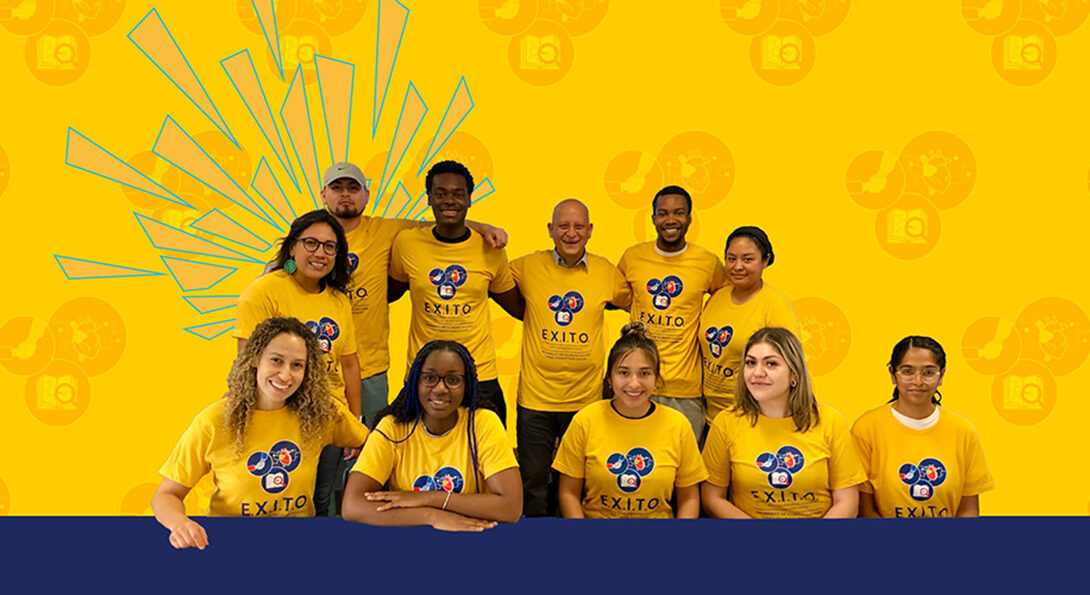
New program trains undergraduate students to address health disparities and build careers.
Text
Students from all seven of UIC’s health sciences colleges are encouraged to pursue advanced studies, but when Carlos Crespo was appointed dean of AHS in August 2022, he planted seeds for a new research training program catered specifically to AHS undergraduates — especially those from underserved or historically marginalized communities. Launched in the summer of 2024, the Enhancing Cross-disciplinary Innovation and Training Opportunities (EXITO) program offers early-career students three years of specialized study, mentorship and hands-on research experience.
EXITO, which means “success” in Spanish, is intended to create leaders who can transform health and social systems in the communities that need it most. Nine AHS students from a range of departments — DHD, KN and RS — have been selected as the first cohort of fellows.
Quote
We need to recruit students from the places where health disparities are, give them the same opportunity as students from other places and then encourage them to address their community’s problems better than anyone else can.
Text
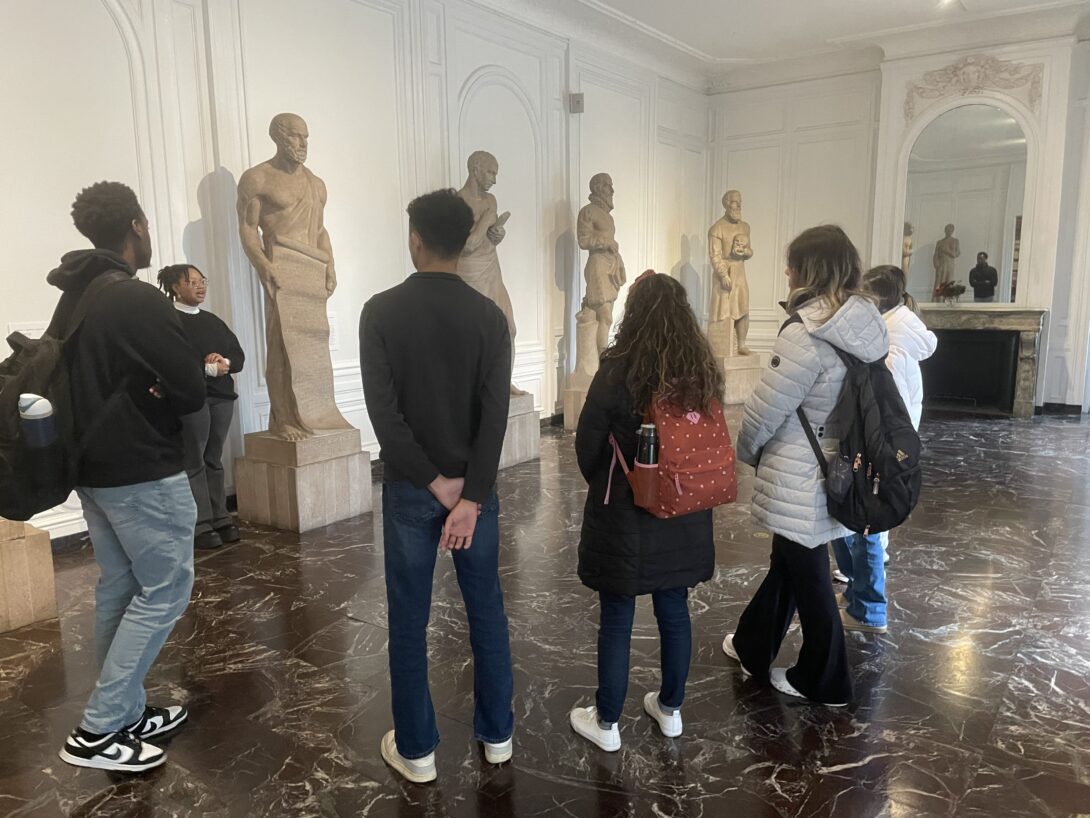
The three-year track includes peer and faculty mentoring, enrichment workshops on research practices, placement in a research learning community (RLC), attendance at scientific conferences and opportunities to present original research. Along the way, students receive financial assistance so they can devote significant work hours to faculty research projects. Second- and third-year fellows are eligible to receive up to $5,000 in tuition support per academic year.
The first iteration of EXITO was born at Portland State University, where Crespo was a public health professor and administrator, serving as vice provost from 2017 to 2022. More than 600 students were trained through the program in Portland, many of whom have gone on to attend prestigious graduate schools.
Although several initiatives at UIC help students from marginalized communities succeed in health care fields, including the Urban Health Program (UHP) and Medicina Scholars, EXITO works with AHS students through multitiered mentorship — peer mentors, EXITO sponsors, research mentors and a UHP advisor — to offer support beyond graduate school or medical school admissions assistance.
Text
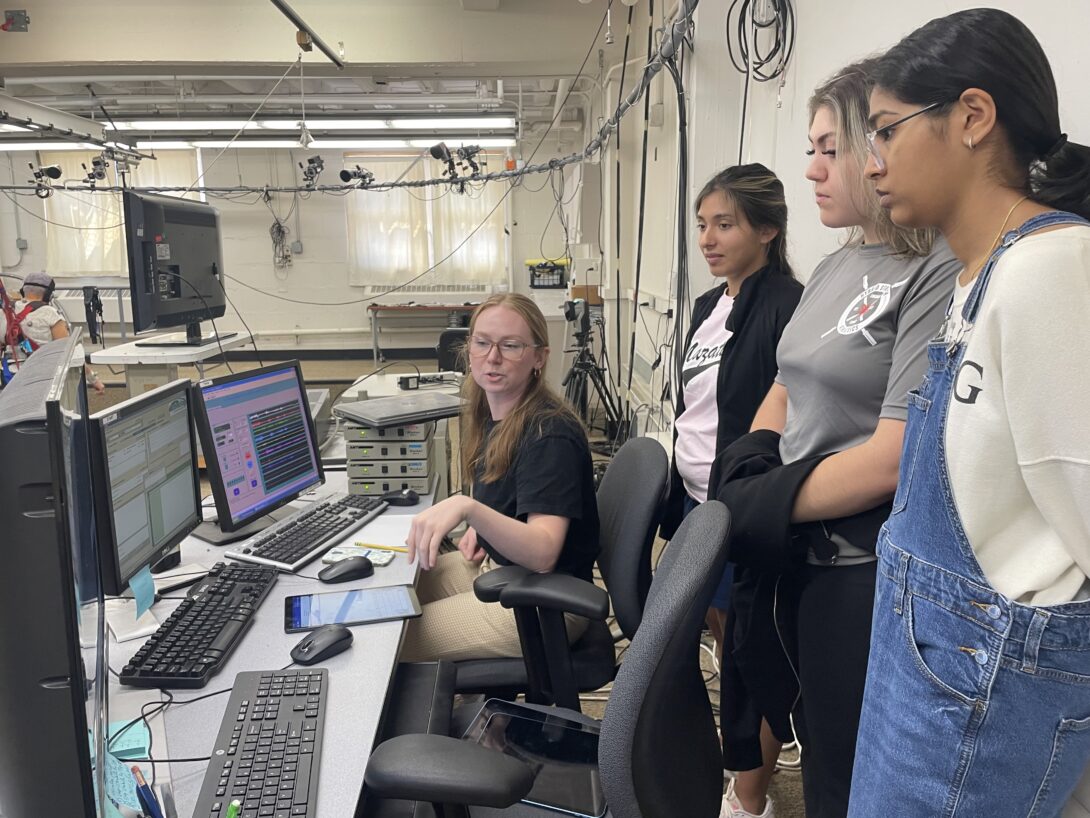
Viviana Kabbabe-Thompson, AHS assistant dean of student affairs and lead in executing EXITO, looks to partner with these existing programs on campus, especially UHP’s assistant director Jennifer Hernández, to develop EXITO’s unique mission in the coming years. The goal is to increase students’ “skills and marketability through research,” Kabbabe-Thompson said. “The more we can aid in supporting one another in programming, the more successful we will be in achieving our overall mission.
Rather than simply facilitating short stints as summer research assistants, EXITO helps fellows navigate the culture of the academic and professional world.
“These students have faced obstacle after obstacle,” Crespo said, “whether that is a hurricane or a lack of money or books that were not in their languages. They have managed to show up here at UIC on their own, and it’s up to us to get them to the next level.”
The mentorship and seminar structures of EXITO were designed to help fellows build implicit skills steadily over the course of years: how to network, speak with researchers, work in a lab, submit an abstract for a conference or present for larger audiences. Most importantly, the extended length of engagement with fellows allows them to build an identity as a scholar.
“One summer in a laboratory doesn’t eradicate imposter syndrome,” Crespo said. “It takes a couple of years for students to think of themselves as fellows or scientists.”
The EXITO program officially began in summer 2024 with a three-day research academy, where fellows met working researchers and built some excitement for the road ahead. For Ciara Balkcon, a KINES undergraduate student and EXITO fellow, the summer kick-off event set the tone for her journey and presented her with role models to follow.
“I got the opportunity to meet with staff in the college and hear their stories of hardship, mistakes and eventually finding the path that got them to where they are now,” she said.
Crespo also values those stories of academic struggle and dealing with roadblocks as a researcher.
“The fellows may end up working with faculty members who submit grant proposals to NIH that get rejected. This will teach perseverance; that’s important.”
Text
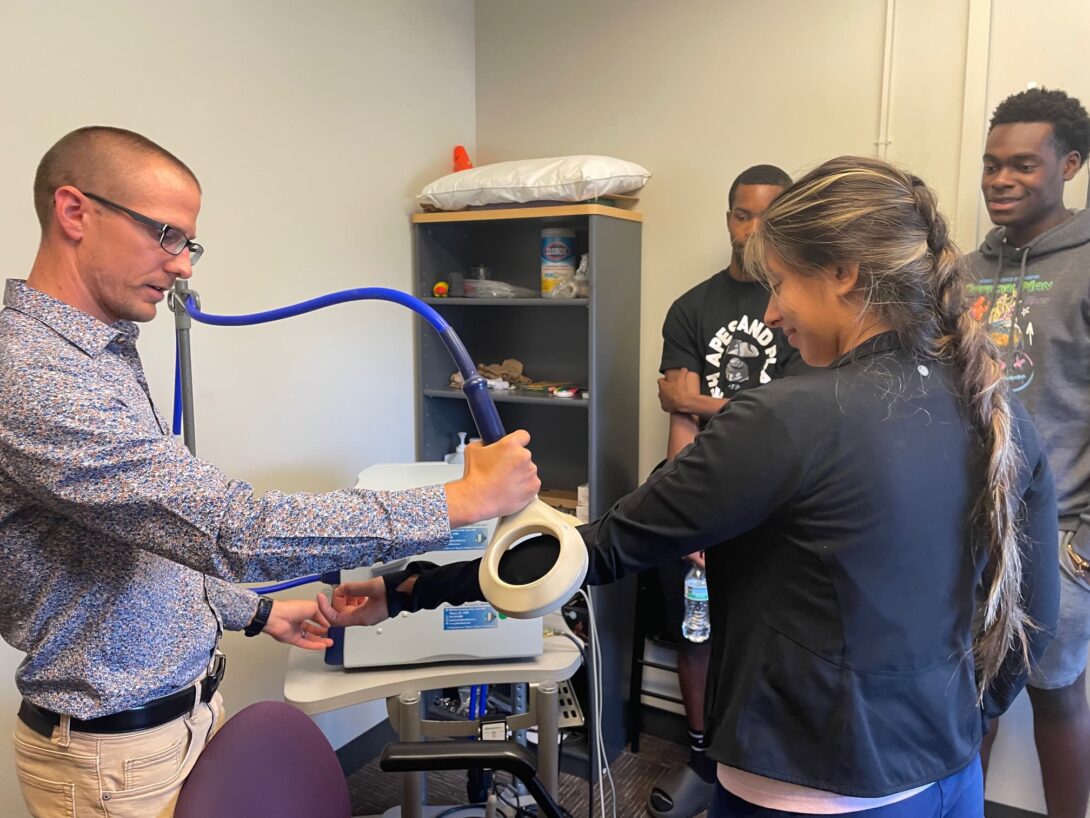
As the fall semester began in 2024, fellows started weekly enrichment workshops taught by PT clinical associate professor Grenita Hall. The curriculum covers communication skills in academic settings, basic research concepts and CliftonStrength assessments to identify their top qualities.
“Fellows have worked intensely in weekly enrichment sessions in addition to their academic obligations,” Hall said. “This is the first cohort, and they are doing an exceptional job!”
“The enrichment workshops have been primarily focused on how to search for and present yourself for opportunity, as well as learning about what it means to be a researcher,” said Balkcon. “Research is a vast landscape, and it’s important to find the right fit for you.”
The formation of RLCs will be a turning point for fellows looking for their own perfect fit. During UIC Research Week in April, an annual series of events to celebrate the university’s successes in research, fellows will interview to join an RLC: a designation given to faculty research projects with established investigators and two years’ worth of external funding. EXITO leadership is in the process of identifying AHS research labs or centers that qualify as RLCs and can build long-term mentor relationships with fellows. The “heavy lifting” starts in early June, according to Hall, when fellows will begin contributing in their RLCs 18 hours per week for eight weeks. That working relationship will run from this summer through two academic years, up to the fellows’ graduation.
Text
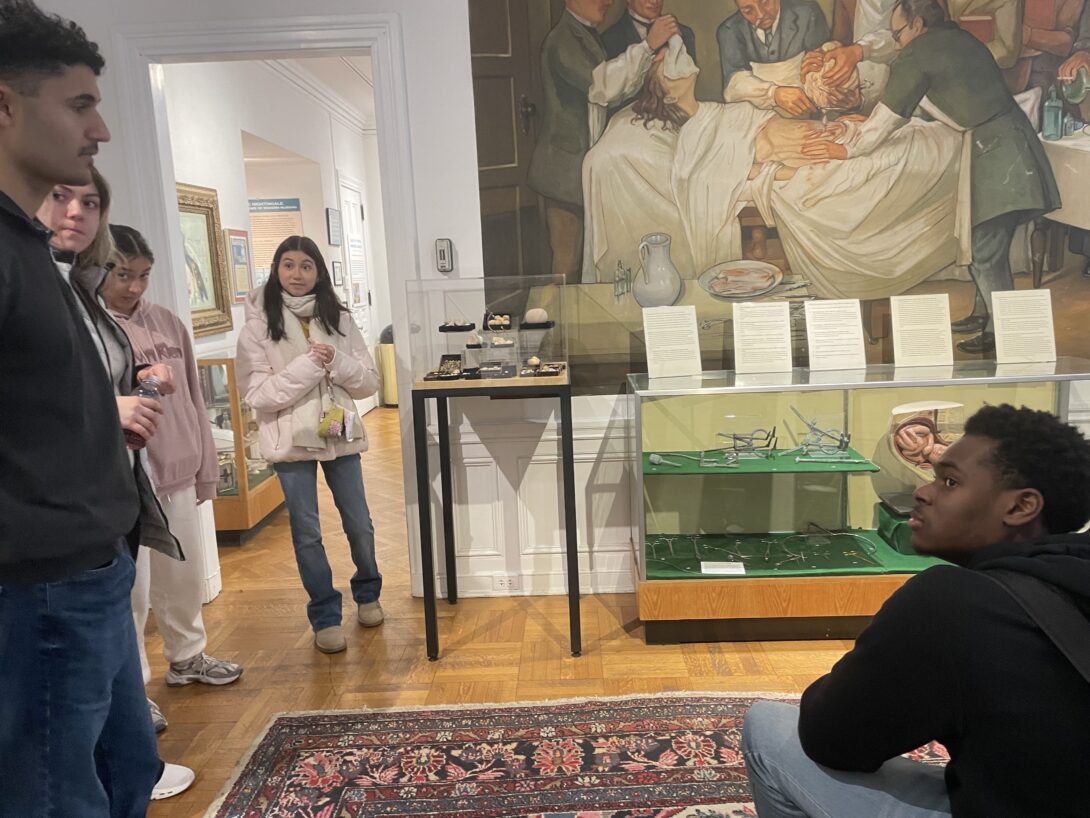
Developing faculty — as principal investigators and as heads of RLCs — is just as important as training the undergraduates of EXITO. PT professor Sangeetha Madhavan will work on faculty recruitment, engaging those interested in developing the mentor-mentee relationships that are baked into the EXITO track. For the 2024-2025 academic year, RLCs will be led by faculty with active, funded research projects. In the future, EXITO will award pilot grants to help promising projects become RLC-eligible, increasing opportunities for both researchers and incoming fellows.
“As a dean, I want AHS faculty to advance and conduct research, but as the PI of EXITO, I want them to include our fellows in those projects,” Crespo said. “It’s important for any faculty member submitting a grant to think about how their research affects their students and the community.”
Though fellows won’t receive their RLC placements until spring 2025, many of them are already drawn to certain topics. Balkcon, for one, hopes to conduct research that resonates with her personal life.
“As someone who is disabled and a lower-limb amputee, I’ve taken an interest in the never-ending growth potential in the field of prosthesis and orthotics,” Balkcon said.
“My hope is to tap into the untapped areas for improvement as I’ve experienced them. I want to build a name for myself in research and contribute meaningfully to the areas that I see affecting the community I’m a part of.”
The three-year journey has only just begun, but already the fellows and faculty alike recognize how important community will become for EXITO. Hall highlighted how supportive of one another the fellows already are; social events organized to build bonds have so far been well attended.
“I met some great peers who are finding out what and where they want to be, too,” Balkcon said.
Since day one, the fellows in this first cohort possessed common traits that will be crucial for embarking on careers in advanced academic research.
“These are innovators,” Crespo said. “They have had to improvise their entire life. That you cannot train.